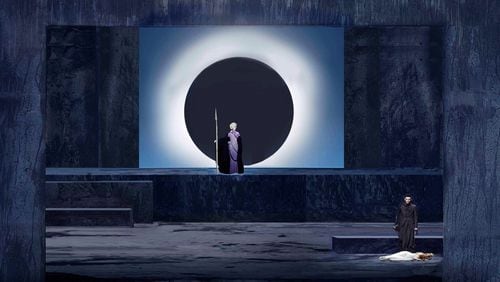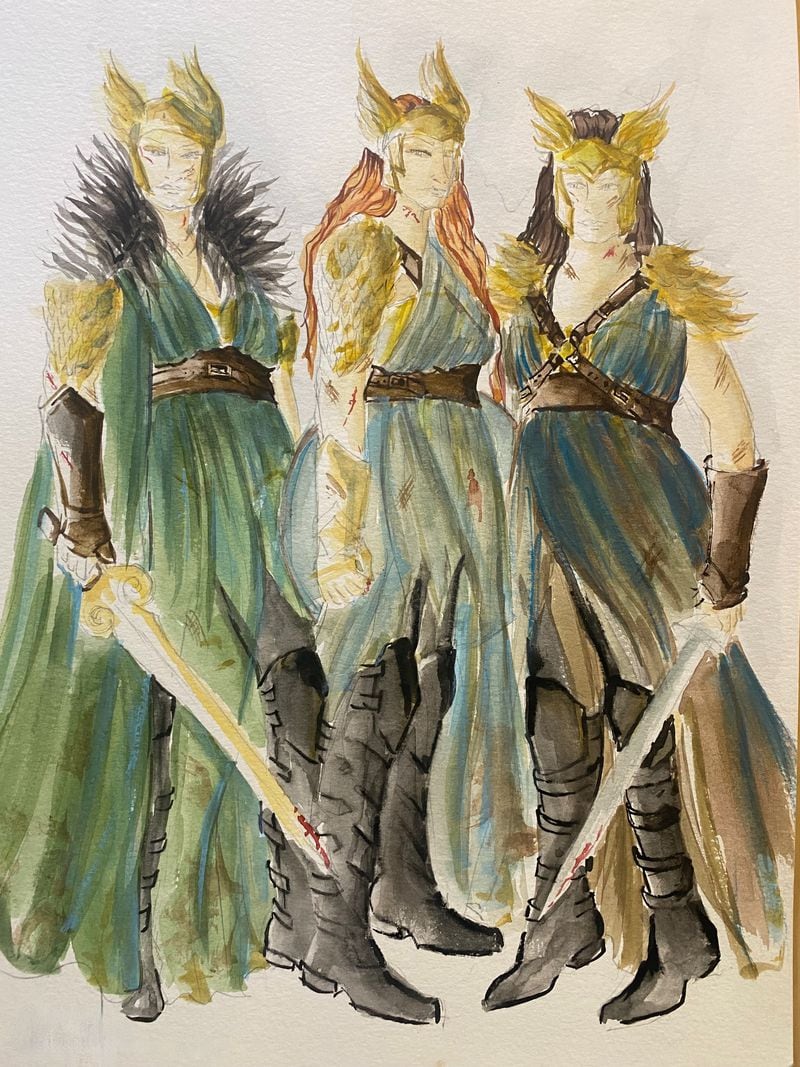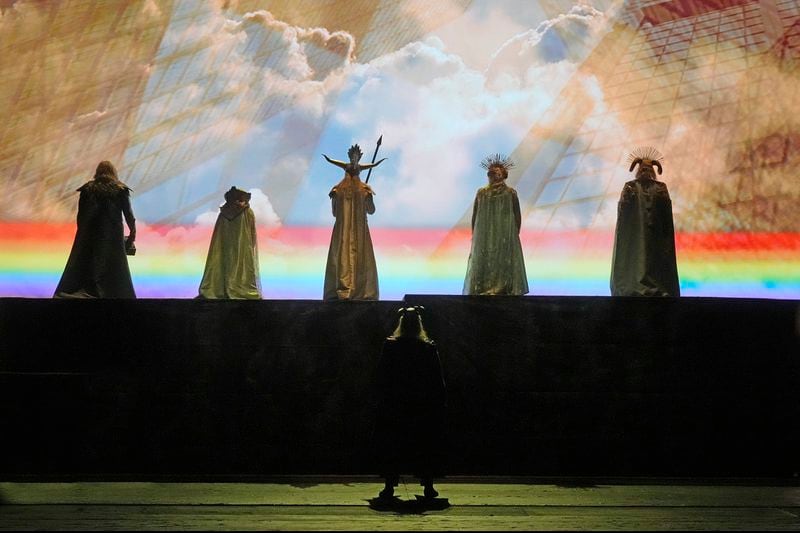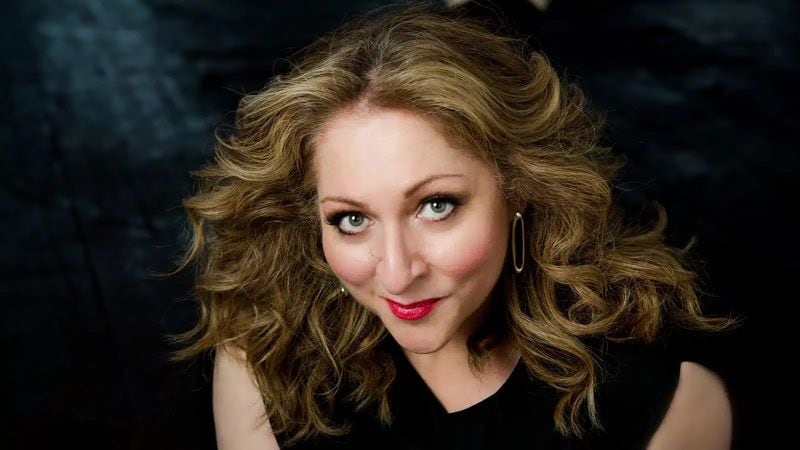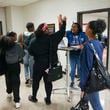This story was originally published by ArtsATL.
Atlanta Opera’s “Die Walküre,” which bows at Cobb Energy Performing Arts Center on April 27, is a notable event for multiple reasons.
Not only is this the first time the work has been produced in the Southeast, but this second installment of Richard Wagner’s magnum opus “Der Ring des Nibelungen” also provides an intriguing examination of female power in opera. (Atlanta Opera performed the first installment, ”Das Rheingold,” in April 2023.)
The idea of powerful operatic women may surprise those with only casual knowledge of the art form. Opera, so they will tell us, is about women who expire for the love of a man while their paramour lives on to belt out a few more fabulous phrases. One can particularly look to the early half of the 19th century, where many operatic characters are two-dimensional and gender stereotyped.
Credit: Courtesy of Atlanta Opera
Credit: Courtesy of Atlanta Opera
In the art form’s early Romantic period, women sang about loss and longing, while men sang of lust and revenge. Even the great Joan Sutherland once described some of her most famous roles as “wilting bel canto flowers.”
These aren’t absolutes, of course. Nobody wants to meet Cherubini’s Medea or Verdi’s Lady Macbeth in a dark alley. And many of the most familiar female characters in opera display more inherent agency than is often ascribed to them. Atlanta has seen two examples this season. ”Rigoletto’s” Gilda may seem a quintessential victim, but she is also the only character in that opera with any strength of conviction.
And while Mimi in “La Bohème” is too often seen to be as fragile as the flowers she embroiders, she is also a surprisingly modern character, a woman who is in charge of her own sexuality and who moves the plot forward.
With Wagner, things get interesting. Wagner was a man of his time, and few will consider him a full-blown feminist. But in Wagnerian opera, women assume a level of purpose and power heretofore rare in the canon.
This is nowhere as apparent as in “Walküre,” where we meet three of his most potent female characters: Sieglinde, whose courage and keen perception largely set the ball rolling for upcoming events in “The Ring”; Fricka, the staunch goddess of marriage; and, most significantly, the warrior goddess Brünnhilde.
“Wagner was obsessed with women and the power of redemption through love,” explains Atlanta Opera General and Artistic Director Tomer Zvulun. “Each act of “Walküre” features a strong woman who drives the plot despite the will of the males. The dominant males are not so dominant. Act one is all about Sieglinde.
Credit: Photo by Ken Howard
Credit: Photo by Ken Howard
“Wotan is arguably the hero of ‘The Ring,’ but in act two he is bookended by two extraordinarily powerful women: Fricka and Brünnhilde, who later rebels against him. Then in act three, Brünnhilde is anointed to become the real hero of ‘The Ring.’”
The observations of dramatic soprano Wendy Bryn Harmer are interesting here. In her long association with the Metropolitan Opera, as well as various other companies, Harmer has essayed a plethora of “The Ring’s” soprano roles in a multitude of different mountings, including Otto Schenk’s classic production at the Met. She is now bringing Brünnhilde into her repertory and has also sung Sieglinde opposite the Brünnhilde of Christine Goerke. (Goerke will sing the goddess in Atlanta as Harmer had to withdraw due to illness.)
“In Wagner,” Harmer reflects, “the story is usually driven by the female perspectives. Humanity is saved by the pure love of a woman, whether it’s a fallen hero as in “The Flying Dutchman” or the world itself in “The Ring.”
“In ‘Walküre,’” she adds, “Wotan is spiraling and keeps on about needing a hero who can act of his own free will. His daughter Brünnhilde is that hero, the one person in his sphere who can act of her own free will — and she defies him. Wotan is so busy mulling over ‘man’s work’ he can’t see that the solution to his problems is standing right in front of him.
Credit: Courtesy of Atlanta Opera
Credit: Courtesy of Atlanta Opera
“Brünnhilde has to make a choice between what her father tells her to do versus what he needs her to do,” Harmer continues. “She chooses to do what Wotan needs. It rocks her world when she realizes that he isn’t all knowing. When she tells him she has information he does not, that Sieglinde is pregnant, she relishes that moment, like any teenage girl who has had a fight with her dad. Wagner clearly had insight into a teenaged girl’s brain!”
Harmer also has strong feelings about those who characterize Sieglinde as a victim. “I had a director who said that,” she recalls, “and I had to say wait a minute. We know her backstory. We see that she is in an abusive relationship. But Sieglinde breaks that cycle. When the circumstances are right, she takes action. She does not hesitate; she leads Siegmund to the sword. She is clever and complicated and extraordinarily brave. Without Sieglinde, we wouldn’t have the second half of ‘The Ring.’”
Although “Walküre’s” narrative of magic rings of fire and a goddess who gets about on a flying horse may seem strange or intimidating to a newcomer, there is little to fear here. Fans of Tolkien’s “The Lord of the Ring” or even Marvel comics will recognize certain plot elements in Wagner’s “Ring” — they all trade in the same mythology. More importantly, the opera’s central characters and conflicts are ultimately relatable to any of us.
Zvulun agrees. “If you look at ‘The Ring’s’ libretto, it is essentially an intimate family drama. ‘Rheingold’ was all about the love for power. ‘Walküre’ shows us the power of love. Something amazing about ‘Walküre’ is the text is written as a series of duets between father and daughter, husband and wife, a man and woman meeting for the first time who are experiencing a transformational attraction. It’s all so human.”
Atlanta Opera’s exploration of Wagner’s “Ring” is the first in the United States since Chicago’s planned cycle was sadly torpedoed by the COVID pandemic in 2020. That is no small accomplishment and stands as a testament to the strength with which post-pandemic artistic recovery is emerging both here and in other regional houses.
“It’s an incredible honor and opportunity,” Zvulun says, with pardonable pride. “It’s not without its challenges, but it is also the most thrilling moment in my career. This is something I have been waiting for for a very long time. I’m pinching myself!”
OPERA PREVIEW
“Die Walküre”
Atlanta Opera. April 27-May 5. $48-$305. Cobb Energy Performing Arts Centre, 2800 Cobb Galleria Parkway, Atlanta. 404-881-8885. atlantaopera.org
::
Mark Thomas Ketterson is a Chicago-based arts critic and writer. He was the longtime Chicago correspondent for Opera News and has also written for Playbill, the Chicago Tribune and other publications.
Credit: ArtsATL
Credit: ArtsATL
MEET OUR PARTNER
ArtsATL (artsatl.org) is a nonprofit organization that plays a critical role in educating and informing audiences about metro Atlanta’s arts and culture. ArtsATL, founded in 2009, helps build a sustainable arts community contributing to the economic and cultural health of the city.
If you have any questions about this partnership or others, please contact Senior Manager of Partnerships Nicole Williams at nicole.williams@ajc.com.
About the Author
